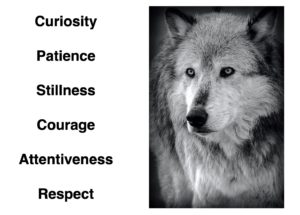Paul Tournier was a Swiss physician and is widely regarded as the most prominent Christian physician of the 20th century. He published over 20 books during his career and was a prominent and captivating public speaker. But what made Tournier unique was not his writing prowess or his charismatic speeches – it was the way he practiced his healing vocation.
About mid-way through his career, Tournier became convinced that he needed to treat the whole person, not only an individual’s physical body. He had become increasingly frustrated by the lack of health his patients were experiencing when the solutions he prescribed only addressed their physical symptoms. A more integrated, congruent approach was needed in order for his vocation to actually contribute to healing and wholeness.
This is how one writer described Tournier’s vocational transformation:
Paul Tournier in midlife had shifted the location of his medical practice from a consulting room, with its examining table and supporting laboratories and surgeries, to his living room, before a fireplace, with him holding a pipe in his hand instead of hanging a stethoscope from his neck. For the rest of his life he used words — listened to and spoken — in a setting of personal relationship as the primary means for carrying out his healing vocation. He left a way of medical practice that was solely focused on the body and embraced a medical practice that dealt primarily with the whole person, an integrated being of body, soul, and mind.[1]
Paul Tournier experienced congruence in his work and vocational life. His approach to his work flowed out of his deepest values, passions, and convictions. His energy and time were directed towards outcomes that he found meaningful. We can assume that there were seasons of disappointment and stress with his work, but the overarching trajectory seems to be one of meaning, health, and integration with who he was.
What is Vocational Health?
Work has become a religion of sorts in American culture.[2] We have increasingly found our value and purpose in our productivity and efficiency. Americans (college-educated Americans in particular) are obsessed with their work and are willing to center their entire existence around the work that they do. “Workaholism” has become a common reality for American’s over the past 15-20 years with 48% of Americans identifying as workaholics in 2019.[3] Below are some of the most common characteristics of a workaholic.
- Prioritizing work before my personal life (54%)
- Worrying about work on a day off (51%)
- Struggling to switch off or actually working while on a vacation (50%)
- Checking emails in the middle of the night (48%)
- Working through lunch (45%)
Western culture pushes us to find our primary identity in what we do which leads to overextension, burnout, depression, and a lack of interest in non-work related aspects of our lives. But society alone cannot be exclusively blamed for the vocational health in our lives. Every person resists vocational health in a variety of ways. We resist moving towards vocational health when we remain ignorant about the narratives we have received from our family-of-origin about work. We resist moving towards vocational health when we refuse to explore vocational possibilities that may be more aligned with our passions and interests. We resist moving towards vocational health when we make life decisions based off of our work alone. We resist moving towards vocational health when we neglect other important aspects of life like rest, play, relationships, and exercise.
Vocational health is a skill that we learn and grow in over time. Every person has to intentionally and repeatedly choose to grow into a vocationally healthy person over the course of their life. This is my working definition for vocational health:
Vocational health is the ability to choose and engage in meaningful work, actively utilize and develop your vocational strengths and passions, and adapt to new work opportunities and realities.
There are three main elements to this understanding of vocational health that needs to be unpacked a bit more:
- Ability to choose and engage in meaningful work – Vocationally healthy people grow in their ability to choose work that they find to be meaningful. This means engaging in work that is personally stimulating and fulfilling. Vocational health grows as we get clear on the kind of work that is meaningful to us.
- Ability to actively utilize and develop your vocational strengths and passions – Vocationally healthy people grow in their ability to actively utilize and develop their strengths, passions, and expertise in their work. This includes finding ways to add unique value to the organization/company/client you serve and looking for opportunities to further hone your vocational craft. Vocational health is nurtured when we seek to be stretched, rather than remaining static.
- Ability to adapt to new work opportunities and realities – Vocationally healthy people grow in their ability to adapt to changes, opportunities, and/or challenges in their vocation. This includes developing some vocational grit and endurance, remaining flexible and open-minded to new possibilities, and paying attention to our inner vocational desires. Vocational health occurs when we remain nimble and flexible when work changes occur.
Growing into vocationally healthy people takes time, courage, and deepening self-awareness. Spending some time examining your Vocational Animal is a great place to start.
Vocational Animal
The Vocational Animal[4] is a tool that helps us to begin to explore and examine our personal sense of vocation. What if our vocation is like a wild animal? And what if in order to discover our vocation (or rediscover) we needed to treat it like a wild animal?
If you want to see and become familiar with a wild animal in the woods, you need a certain set of characteristics: curiosity, patience, stillness, courage, attentiveness, and respect. The worst thing to do would be to stomp around, yell, and demand for the animal to come out!
But that is often how we treat our vocation when we are in a rut or dissatisfied. We become impatient, loudly lament our situation, and demand that some kind of external change occur. And while often some kind of external shift does need to emerge, we do ourselves a disservice if we forgo the deeper inner work of vocational passion.

What might it look like to become curious about the vocational desires and yearnings that lurk beneath the surface of your life?
Where is patience needed in this season in order to notice the fully reality of your vocational life?
Have you practiced a rhythm of stillness in order to renew your vocational sensibilities?
How might fear be impacting your vocational decisions and what could it mean to live with more courage?
What part of your work requires focused attentiveness in this season and how can you offer it?
Does your life display respect to your vocational passion?
These are the types of traits that are required to discover, sustain, and renew a vocation over time. If you want to see an animal in the wild, the last thing you should do is stomp around and yell for it to come out. Internal and external pressure to achieve and produce rarely yields meaningful results.
The Angel in the Marble
Michelangelo is considered by many to be the greatest artist of the 16th century. He is known for his work on the Sistine Chapel, the Pieta, and the statue of David commissioned for the city of Florence. A significant part of Michelangelo’s artistic genius stemmed from his ability to see the completed sculpture before he had begun.
I saw the angel in the marble and carved until I set him free.[5]
Seeing David within the marble compelled Michelangelo to begin the slow, tedious, painstaking work of crafting this massive statue. Most scholars believe it took him 2-3 years to complete the sculpture. Growing into vocationally healthy people requires that we have some vision of a preferred future. We will give up too easily without a clear vision and goal. If we seek vocational health it will mean confronting the scripts we carry about work, getting feedback from colleagues about their experience working with us, being stretched to learn new vocational competencies, and exploring where we feel vocationally stuck. If we go on this journey, what will life look like on the other side? Will it have been worth it?
Growing into a vocationally healthy person is challenging, but there is tremendous fruit on the other side. Healthy trees grow fruit and as we grow in mental health there will be “fruit” that grows in our lives. Here are a few examples of “fruit” that will grow as we pursue vocational health:
- Energy that comes from our internal desires and external work having greater synergy.
- Passion for the tasks, responsibilities, and people that are connected to our vocation.
- Integration with our relationships, physical health, emotions, spirituality, and all aspects of life.
- Sustainable rhythms of work, rest, play, and relationships.
- Agility that comes from living out our vocation over time within various contexts.
A life of excitement, satisfaction, and passion is available for those who seek to grow in vocational health.
This post is part of the You Are a Soul Series:
- Part 1: You Are a Soul
- Part 2: Emotional Health
- Part 3: Relational Health
- Part 4: Spiritual Health
- Part 5: Physical Health
- Part 6: Mental Health
- Part 7: Vocational Health
- Part 8: Crafting a Rhythm of Life

[1] Eugene H. Peterson, As Kingfishers Catch Fire, p. xvi.
[2] “Workism is Making American’s Miserable.” The Atlantic. February 24, 2019. https://www.theatlantic.com/ideas/archive/2019/02/religion-workism-making-americans-miserable/583441/
[3] “Almost half of American’s consider themselves ‘workaholics’”. New York Post. February 1, 2019. https://nypost.com/2019/02/01/almost-half-of-americans-consider-themselves-workaholics/
[4] I am adapting Parker Palmer’s idea of the soul being like a wild animal in his marvelous book Let Your Life Speak, p. 8.
[5] “The Angel in the Marble.” July 9, 2013. https://medium.com/@nilsaparker/the-angel-in-the-marble-f7aa43f333dc
Share this Post
